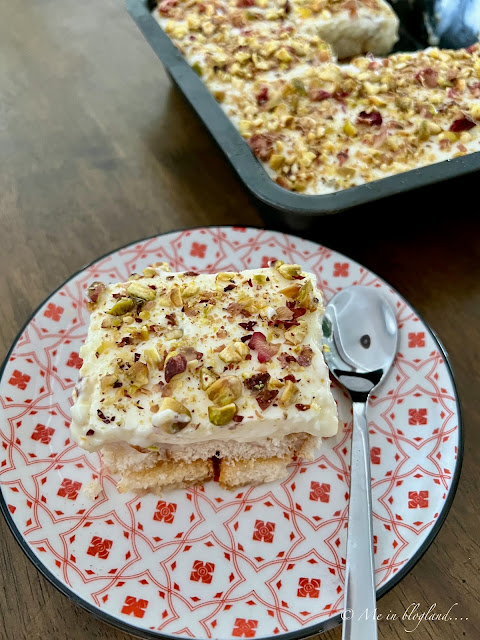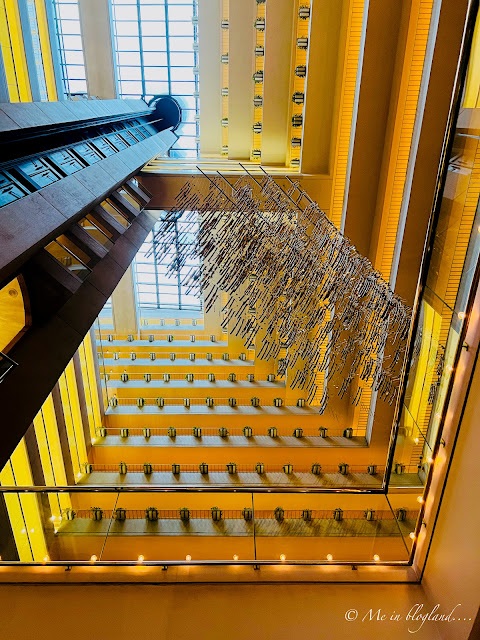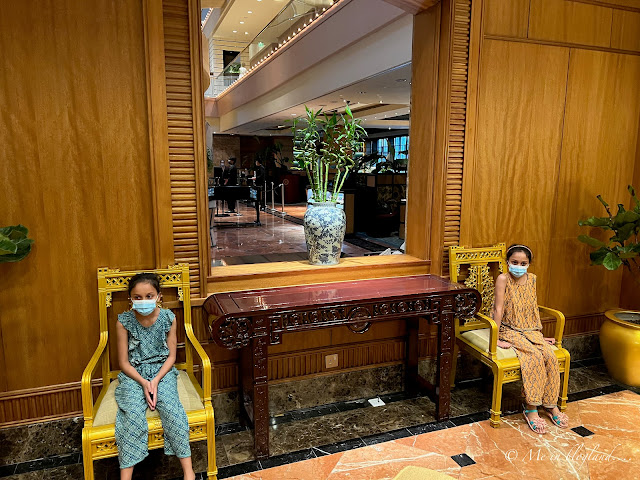One of my aunts who lived in the Middle East for many years, sent me this recipe for Aish El Saraya aka Lebanese Bread Pudding at the start of the pandemic. With lockdowns and work from home being enforced, I had a lot more time on my hands than usual to get the culinary juices flowing.
Aish El Saraya is a popular and delicious no-bake Middle Eastern dessert. Aish El Saraya translates in Arabic to “the bread of the palaces ". This dessert is essentially an aromatic bread pudding.
I not only love Middle Eastern food (as I have reiterated many times) but I love their desserts as well especially baklava, künefe, halva and rice pudding. The use of nuts, rose water and citrus hints in their desserts greatly appeals to my palate so I was eager to try a Middle Eastern dessert recipe that I had previously never heard of.
Aish El Saraya needs only a few ingredients and comes together fairly quickly. It is the perfect dessert to make while entertaining as it can be made ahead of time. It is also eggless so it caters to those who don't consume eggs or dislike the smell. I have made this dessert many times and I've noticed that it appeals to both adults and kids alike. My kids absolutely love it. The appearance of this dessert with the mauve-green pistachios and the pretty edible rose petals along with the aroma of the orange and rose water makes this dessert feel exotic and enticing.
There are three main components to this dessert. The bottom layer, i.e. the base, is made out of white bread. Toasted stale white bread is what is preferred. For me, using toasted store-bought rusk for this dessert is a no-brainer because I like the spongy cake-like base compared to the softer bread base texture. A simple syrup consisting of sugar, water, orange blossom water, lemon juice and rose water is then made which is poured over the rusks. This imparts both sweetness and fragrance. Then comes the milk custard topping which is the star of the dessert. It is so good, you can eat it just as it is! It is made with whole milk, full-fat condensed milk and whipping cream. Corn flour is used to thicken it and it is flavoured with rose water and orange blossom water. The milk custard gives the pudding that lovely creamy texture, just the right amount of sweetness and a delightful perfume. The dessert is garnished with crushed pistachios and edible rose petals that enhances its color, flavor, and texture.
At any given time I have milk, sugar, whipping cream, pistachios, corn flour, citrus fruits and rose water in my kitchen so I typically have to buy only the rusk and condensed milk to make this dessert. Initially, I checked the availability of orange blossom water and although available in Singapore, I felt like the ingredient would just be idling away in my pantry as this is the only dish I would ever use it for so I substituted it with grated orange zest. It worked out pretty well so I have just continued to do that. Please go ahead and use orange blossom water if you have it or are inclined to buy it. You could also use a few drops of orange essence or a few tablespoons of orange liqueur instead.
I have made this Lebanese bread pudding at least half a dozen times and have optimized the ingredient quantities it to perfectly fit a 8x8 inch square (metal or glass) dish which to me, is just right for dinner parties. You could use a round dish but cutting the rusks to fit the bottom might be cumbersome. A square or rectangular dish are the more suitable choices. I also cut down on the sweetness in the original recipe to suit my preferences. No one who has tried my rendition has yet complained that the dessert isn't sweet enough so I'm sticking with my modification 😊 Feel free to dial up the sweetness if that is how you prefer your dessert.
I really hope you try this recipe folks because trust me, it is a keeper.














